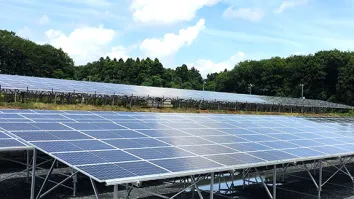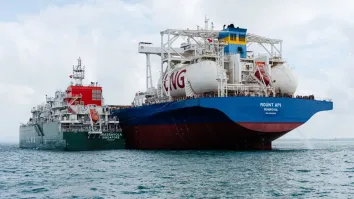Natural gas holds promise in solving Asian energy trilemma
ANGEA study cites natural gas as a transformative solution to the Asian energy security challenge.
Amidst surging economic growth and burgeoning populations, Asian nations grapple with an intricate energy challenge in the form of a trilemma: balancing affordability, reliability, and sustainability of energy supply.
The Asia Natural Gas & Energy Association (ANGEA) recently commissioned a study to explore the pressing issue of energy security in the region, and the report’s key takeaway underscored the paramount importance of natural gas as a transformative solution.
Unveiling the study’s critical findings in a recent interview was ANGEA CEO Paul Everingham, who highlighted the significance of natural gas in addressing the energy trilemma faced by Asian countries.
“The report was commissioned because energy security is becoming more and more important across the world, especially in the last two years,” Everingham told Asian Power.
He stressed the exponential growth projected in nearly all Asian countries for the next three to five decades has created the energy trilemma – an intricate puzzle that demands a multi-faceted solution.
“Can energy be supplied both affordably, reliably, and sustainably? Our study reveals that natural gas plays an essential role in any of the possible solutions to meet this trilemma,” he said.
The report, he added, has put a spotlight on the undeniable significance of natural gas as a bridge to a cleaner energy future.
“Many emerging Asian economies, despite their ambitions for sustainability, are priced out or kept out of the natural gas market due to the current high prices," Everingham said. "This leads to continued reliance on coal-fired power generation, hindering their progress towards sustainability.”
For ANGEA, confronting the situation requires striking a balance between the three dimensions of energy security. “Every country in Asia takes energy security, energy affordability, and energy sustainability very seriously… However, focusing solely on one aspect can inadvertently harm the other two,” said Everingham.
For example, higher gas prices can deter emerging economies from accessing natural gas, forcing them to rely on coal-fired power generation, which is neither sustainable nor environmentally friendly.
ANGEA’s top executive lauded countries like Japan, Korea, Taiwan, and China for their longstanding efforts in prioritising energy security, reliability, and sustainability.
In contrast, he highlighted that rapidly growing nations such as Indonesia, the Philippines, and Vietnam face considerable challenges in transitioning to cleaner energy sources.
“For these emerging Asian powerhouses to embark on a successful transition towards a cleaner energy future, they first need access to affordable and reliable natural gas,” Everingham explained.
The report offers recommendations to make this transition easier and more sustainable for these nations, starting with seeking easier access to natural gas to facilitate a smoother transition towards cleaner energy alternatives.
When asked about short-term measures to ensure energy security, Everingham stressed the importance of enhancing energy efficiency across the economy and preparing for a switch from coal to natural gas.
This involves strategic planning for gas contracts, infrastructure development, and integration with renewable energy sources. “Preparing for the shift from coal to gas is also crucial – this means planning now for the necessary gas contracts and infrastructure, as well as considering the integration of renewables like wind, solar, hydro, or geothermal,” he said.
The ANGEA study serves as a stark reminder of the profound challenges facing Asia’s energy landscape. With natural gas positioned as a key player in resolving the energy trilemma, countries must act swiftly and decisively to achieve a sustainable, reliable, and affordable energy future.
As Everingham succinctly put it, “The time to act is now, so that these nations can join their advanced Asian peers in securing their energy portfolios for the future.”

















 Advertise
Advertise







Commentary
What a $635b investment push could mean for India’s refineries and thermal power plants